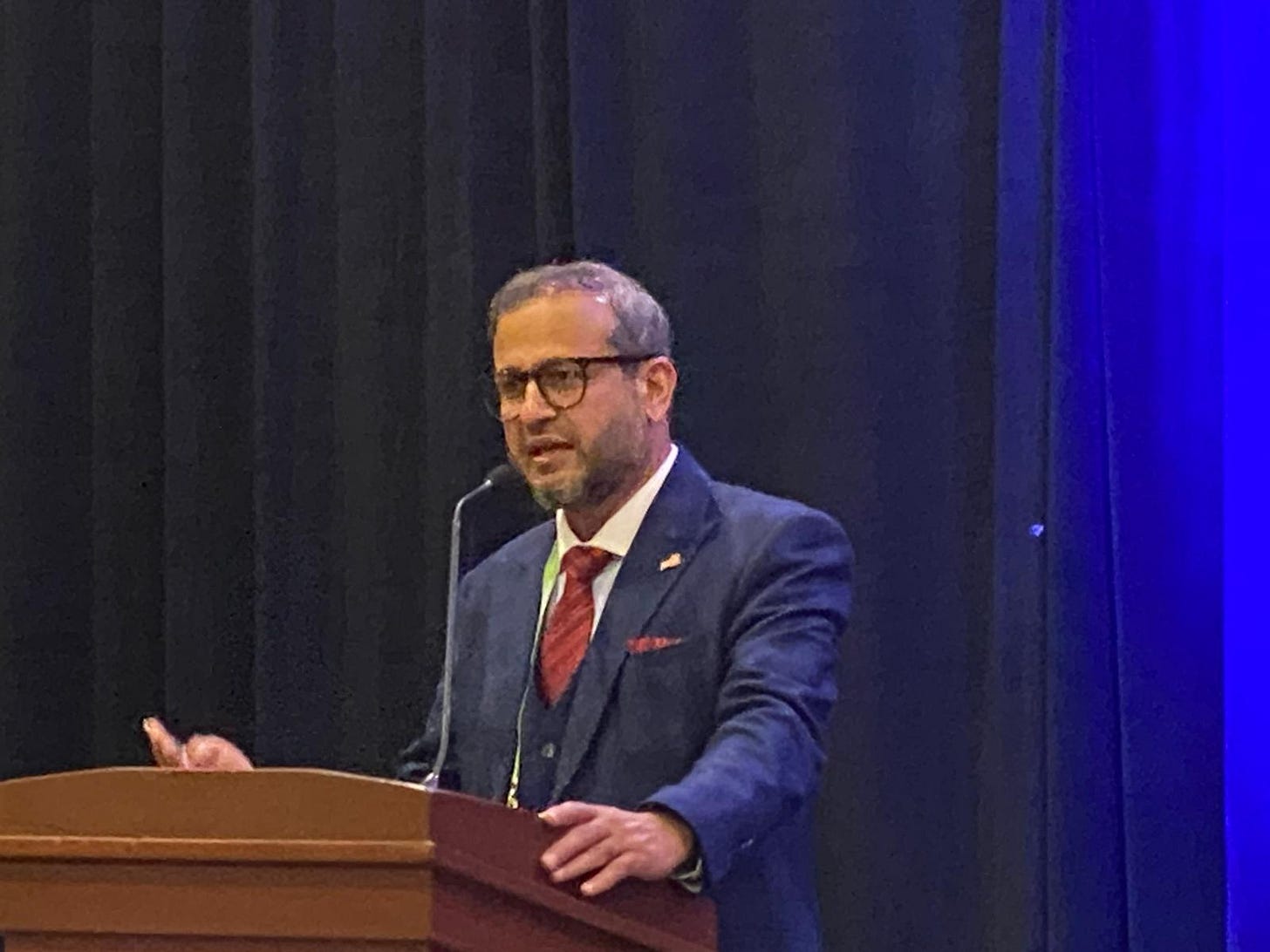ISNA 62 Convention, A Forum for Knowledge, Connection, and Advocacy
By Mujeeb Kazi

It is a well-documented fact that people attend conferences for a variety of reasons: to gain knowledge, to meet individuals they might not otherwise have the opportunity to meet, and to cross paths with friends with whom they can spend quality time. That is precisely what happened at the 62nd Annual Convention of the Islamic Society of North America (ISNA), which took place over Labor Day Weekend in Chicago.
This year’s convention proved once again to be more than just a series of lectures—it was a gathering space for learning, connection, and building bridges across communities. With over one hundred lectures, panels, and interactive sessions, the convention drew thousands of participants from across the United States and Canada. From civic engagement to spirituality, from community service to international affairs, ISNA 62 offered a rich menu of discussions that spoke to the most pressing issues of our time. Among the many sessions, one that drew particular attention was focused on Global Issues: Kashmir, Palestine, and Syria.
The featured speaker was the acclaimed scholar Dr. Khalid Beydoun, recognized globally for his expertise in constitutional law, civil rights, Islamophobia, and South Asian affairs. Dr. Beydoun currently serves as Scholar-in-Residence at Harvard’s Berkman Klein Center, where his scholarship bridges critical theory with urgent questions of justice and representation. I had the honor of moderating this session. While my role was primarily to guide the discussion, I also contributed substantively, raising key questions about how Muslim Americans can remain engaged with these global causes while strengthening their advocacy at the local and national levels. Dr. Beydoun’s remarks illuminated the complexities of each conflict—highlighting not only the human rights violations but also the geopolitical forces that sustain them. The audience engaged actively, with questions that reflected both the anguish of watching these crises unfold and the determination to remain advocates for justice.
For many, the session was not just academic but deeply personal, as the plight of Kashmiris, Palestinians, and Syrians resonates with our collective conscience. In addition to panel discussions, the ISNA Convention also hosted two screenings of Saffron Kingdom. This powerful cinematic work tells the story of Kashmir through the lens of exile, memory, resistance, and resilience. Directed, written, and produced by Arfat Sheikh under Daffodil Studios, the film has already garnered international recognition, including the Best Feature award at the LA Film & Documentary Awards. It has been selected to compete at the 2025 Chicago Filmmakers Awards. Its Executive Producer, Dr. Ghulam N. Mir, is not only a respected gastroenterologist but also a longstanding leader within ISNA and President of the World Kashmir Awareness Forum. Both screenings at ISNA 62 were attended to full capacity, drawing diverse audiences who found themselves deeply moved by the narrative.
The film reminded us that Kashmir is not simply a territorial dispute—it is a human story of loss, dignity, and an unyielding refusal to surrender identity. Beyond the official sessions, the convention weekend also became a catalyst for meaningful conversations. One such gathering took place at the residence of Javaid Rathore, a nationally known human rights activist and a prominent leader of the Kashmiri diaspora. I was joined there by colleagues, including Dr. Ghulam Nabi Fai and Yasin Chohan. In that intimate setting, we spoke at length about what needs to be done to advance the Kashmiri cause. Javaid, drawing from his extensive experience in engaging U.S. government officials, offered valuable insights into strategies the diaspora can adopt to amplify its voice.
The conversation was both heartfelt and strategic—focused on sustaining advocacy while building alliances. What struck me most was the shared urgency in the room. Each of us recognized that the diaspora carries a profound responsibility: to be the voice of those silenced in Kashmir, and to ensure that the plight of Kashmiris remains visible on the international stage. As our discussions unfolded, one point of action emerged clearly: the importance of mobilizing for the upcoming peaceful rally in New York on September 26, 2025, when Prime Minister Narendra Modi will be addressing the United Nations General Assembly.
Dr. Fai, who has long been at the forefront of global advocacy for Kashmir, emphasized the historic significance of that day. The rally will serve as an opportunity for diaspora communities to unite and send a message of solidarity, justice, and peace. The 62nd ISNA Convention reminded us that gatherings of this nature are not only about listening to lectures—they are about strengthening bonds, recharging our moral energy, and charting paths forward. Whether through a moving film, a panel discussion, or a late-night meeting among activists, the convention provided countless opportunities to reaffirm our shared values of justice, compassion, and resilience. As we move forward, let us carry with us the lessons and connections forged in Chicago, and let us commit to making them a source of strength for our communities here in North America and for oppressed peoples worldwide. Mujeeb Kazi is the President of the North Texas Islamic Council (NTIC) and a community organizer engaged in interfaith dialogue, civic leadership, and international advocacy.



